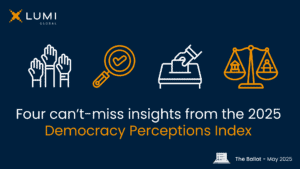When the Soviet Union collapsed and the Cold War came to a close in 1991, political scientist Francis Fukuyuma argued that humanity had arrived at “the end of history.” By this, he meant that humans had reached the “final form of human government” in democracy since it had bested other forms of governance like monarchy and fascism. Yet, 31 years later, this enthusiasm for democracy seems to have faded. As pointed out in the book Backsliding: Democratic Regress in the Contemporary World, many countries transitioning to democracy between the 1970s and 1990s are now “unable to sustain” their democracies and are experiencing “democratic backsliding.” According to US-based non-profit organization Freedom House, as of 2023, democracy has declined for nineteen consecutive years in many former Soviet states which democratized, with other regions not doing much better.
In light of its decline, liberal democracy’s ability to deliver results has been called into question by countries which never embraced it in the first place. Non-democratic states often attempt to justify their authoritarian rule by asserting that they are more able to “deliver better outcomes for the people” despite citizens lacking the ability to vote, organize, or protest to express their desires. In this piece, we aim to counter such claims and provide a defense of liberal democracy by offering several research-backed benefits which liberal democracy may bring to countries which choose to embrace it.
1. Democracies Do Not Fight One Another
Rooted in the ideas of philosopher Immanuel Kant, the democratic peace theory is the idea that “democratic states do not fight…against each other” and is said to be the “closest thing” there is to an “empirical law” in international relations. This could be for several reasons, including democracies being better at communicating critical information, holding ideals which help them settle conflicts faster, or that democratic states have similar preferences and have little interest in fighting. Specific reasons aside, the point remains the same: democracies as a rule almost never fight each other, the lone exception being the brief Kargil War between India and Pakistan in 1999.
According to a study from 2021, a democracy is five times more likely to not go to war with another democracy than a tobacco smoker is to get cancer. In fact, since the beginning of the twentieth century and the growth of universal suffrage, the general consensus is that democracies are “inhibited by their fundamental nature from fighting with one another.” This does not mean that democracies do not fight with non-democracies, as recent examples in the US’ wars in Iraq and Afghanistan show, but this theory of a “democratic peace” is strongly supported by the available evidence.
2. Democracy Can Lead to Prosperity
Back in the 1990s, one paper found that “the overall effect of democracy on growth is weakly negative.” But have things changed for the better since then in democracies? The answer is yes.
One important way of measuring prosperity is economic growth. While there have been (and still are) cases of growth not being linked to democracy, more recent evidence shows that democracy can in fact be positively linked to economic growth. In one 2019 paper simply titled “Democracy Does Cause Growth,” researchers find that democracy has a positive effect on countries’ GDPs based on statistical models. Another study finds that, after running tests with data from 185 countries via machine-learning index, democratic institutions “facilitate economic growth in the long-run.” Explanations for this trend include, amongst others, democracies’ attractiveness to investors, lower social unrest, and the provision of services to citizens which boost their well-being, such as schooling and healthcare.
Well-being also happens to also be a key factor contributing to a country’s prosperity. Turning to developing countries, one study states that democracy, in the form of electoral competition, may in fact lead to better health outcomes for citizens in rural areas due to political rivals making public goods provision (including healthcare) a key part of their campaigning. This is substantiated by another study which finds that the number of infant deaths in Sub-Saharan Africa falls by 1.8% on average once a state democratizes. It has also been noted that democracies, no matter their levels of development, “seem to raise more taxes and invest more in public goods related to health and schooling,” which in turn can boost prosperity since it enables citizens to more actively participate in society.
3. Democracy Empowers Civil Society
Electoral democracy is ideally based on the idea of trust at all levels: citizens trust politicians to listen to their wishes before making policies, politicians trust citizens to express their interests and vote, and leaders trust both politicians and citizens to respect their decisions. Transparency and accountability in governance boosts trust amongst democratic citizens, but what sets democracy apart is its organized civil society.
Encompassing all of those who lie outside of government and organized business, civil society is composed not just of individual citizens, but also the groups they form to advocate for their interests, including labor unions, cooperatives, and political parties. This does not mean that all citizens must be involved in politics or organizing. However, as put by Gabriel Almond and Sidney Verba in their iconic work The Civic Culture, an “essential ingredient of a satisfactory democracy” is having a large part of the citizenry with “experience of active participation in small governing groups” such as the ones above. What results from an engaged civil society is a political culture, or civic culture, which is “a pluralistic culture based on communication and persuasion” which also prizes “consensus and diversity.” While it may be difficult to transfer this trust in individuals into trust in institutions, the ability for groups of similar background forming associations to advocate for their interests as part of civil society has become enshrined as “protections for…rights to organize” in liberal democracies.
A key reason why democracies prioritize civil society and advocate for its formation is to prevent a “gulf…between the state and the individual” from occurring, as it is easier for governments to connect with individual citizens via the civil society groups representing them. As such, protecting the rights of citizens to organize and advocate on their own behalf, as liberal democracies do, opens up the possibility for a wider array of views to be made public and affect the policies democratic governments may pursue.
4. Democracy Ensures Robust Public Support
In a democracy, governments ideally have three ways of keeping public support: via input, output, and throughput. Input involves “allowing democratic input into the system” through, say, voting. Output involves implementing policies which reflect the wishes of citizens. Throughput comes from the ability of citizens to follow and/or be involved in policy-making. While authoritarian governments may be able to maintain support on the basis of output alone, such as through economic growth, these regimes “become fragile when growth slows or ends” because they lack the other two sources of popular support.
What sets democracy apart is that input and throughput are equally as important as output since they make citizen involvement possible by enabling them to elect representatives, vote in referendums, and even deliberate policy. Because of this, democratic governments do not risk the institutional instability that authoritarian regimes may face in the event of political or economic crises since their right to rule is not just based on popular policies, but citizen involvement and oversight as well.
Again, while all three sources of support are necessary for democracy to thrive, citizens in democracies are motivated by being involved in both the input and throughput aspects whenever possible. Democratic governments may not always meet citizens’ expectations when they make new laws, but it is the ability of citizens to consistently be involved in decision-making is something that keeps trust in the system strong.
5. Democracies Have Peaceful Transitions of Power
To many citizens in democratic countries, it may seem a little same-old-same-old: a government loses to the opposition in an election, the current leader accepts their loss, and a new government is formed after a transition or negotiation period. The process has become so ingrained in democratic countries’ political systems that it minimally affects the day-to-day lives of citizens. Yet we arguably take this for granted: since 1788, more than one-third of countries have never experienced a transfer in power between two regimes as a result of an election. Regardless of whether power was transferred bloodily or by a leader choosing a successor in these countries, the fact remains that a large part of the world has never seen the post-election peaceful power transfers which underpin a consolidated democracy.
As put by Adam Przeworski, “elections are a method of processing conflicts” and they allow “contending political forces channel their efforts into electoral competition rather than engage in violence.” Regular elections and peaceful transfers of power from one government to another, when practiced over time as part of democracy, contribute to internal levels of stability and normalcy which cannot be replicated in illiberal or autocratic countries. Even if elections themselves do not guarantee peaceful transfers of power, the handovers of power between incoming and outgoing governments is what “sustains political order” in democracies and sets them apart as places where all parties accept the legitimacy of the system.
6. Democracies Experience Less Corruption
A cornerstone of democratic governance is transparency. This means that what goes on in the government, from debating laws to implementing them, is made available for the public to scrutinize. To put it in layman’s terms, sunlight is the best disinfectant: when the lawmaking process is open for all to see, as in established democracies, the likelihood of corruption drops. Transparency also goes hand-in-hand with another principle of democratic governance: accountability. Should an official be caught abusing their power or engaging in corrupt behavior, it is not only visible to the public but it is also possible for the public or parliamentarians to remove such officials via no-confidence votes, new elections, and courts which safeguard the above principles from politicians who may ignore them. Consequently, citizens of democratic countries view their countries as far less corrupt than those of non-democratic countries.
This is not to say that democracy is immune from corruption, as elections alone are often not sufficient enough to prevent corruption and factors such as ethnic divides may lead to more corruption. But what matters most in making democracy corruption-resistant is persistence: for democracy to thrive, “democratic institutions” need time to “stabilize” and be understood in order for democracy to reach its corruption-fighting potential. And that is something that can only occur if democracy is practiced and understood by enough citizens.
While it may seem that, based on all the benefits we have listed in this article, democracy speaks for itself, that is unfortunately not the case. Even today, consolidated democracies face challenges both internally and externally which may undermine citizens’ faith in democracy to really deliver on its promises. Even if there are aspects of our current governing systems which aren’t perfect, we stand firmly in our belief that democracy, a true government for the people and by the people, has no equal. That being said, it is also never something which should be taken for granted, hence why we end this piece with a call to action: democracy was not won easily, and it will not simply continue forever without conscious efforts to support and strengthen it. We believe democracy is always worth this fight, and we sincerely hope that you do as well.


